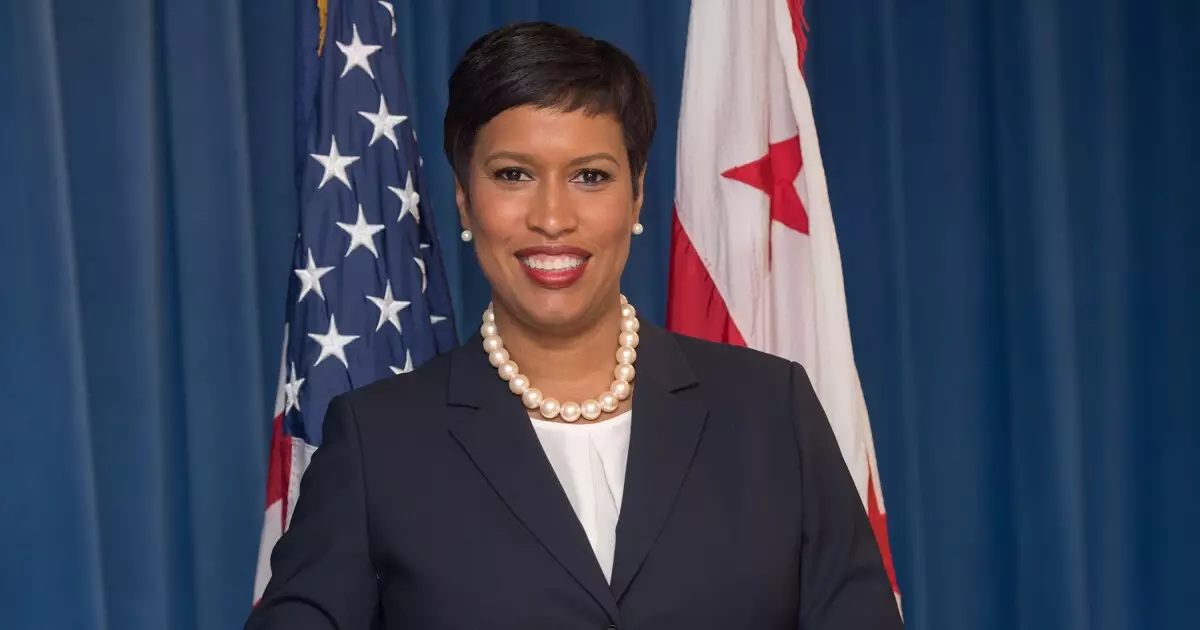The political landscape of Washington, D.C. is poised for a distinctive shift as President-elect Donald Trump gears up for his second term. Recently, Trump met with D.C. Mayor Muriel Bowser, an encounter that holds both symbolic and practical significance for the relationship between the federal government and local city administration. Despite their previous tensions, most notably surrounding military parades and the management of protests, this meeting indicates a new willingness to collaborate on pressing issues. The transfer of control over the RFK Stadium site to the city is a vital step, showing promise for future partnerships.
D.C. faces a unique dynamic in its governance, balancing federal oversight and local autonomy. The Mayor emphasized specific areas ripe for synergy, such as the federal workforce and infrastructure development. These discussions reflect a broader effort to align local needs with federal priorities, especially in light of ongoing budget negotiations and Congress’s influence over local financial matters.
The Mayor’s office has secured a substantial $90 million budget allocation to manage expenses linked to the expected influx of visitors and security requirements during the inauguration. This funding, part of a continuing resolution passed just before the holidays, highlights the financial complexities that Washington, D.C. navigates due to its unique status. The city’s triple-A bond rating is a point of pride, but it faces pressures from federal legislative context—government shutdowns and contentious budget debates can disrupt confidence among credit rating agencies.
As the city prepares for the challenges of a second Trump administration, Bowser’s optimism stands out. “We will continue to strive for common ground,” she remarked, suggesting a hopeful outlook on navigating a potentially divisive political landscape. The path ahead remains full of unknowns, particularly regarding how the city and federal government can synergistically address urban issues while accommodating the intricacies of federal oversight.
One of the key focus areas arising from their discussions is the future of the RFK stadium site. Once a bustling center for sports and community activities, the stadium now stands mostly abandoned, with vast acres of parking lots surrounding it. The ambitious vision for this site involves turning it into a dynamic mixed-use development, integrating residential, retail, and entertainment spaces. Such developments are crucial for reinvigorating community life in D.C., especially as the city aims to entice the NFL’s Commanders back into its urban fold.
In parallel, plans are underway to renovate the Capital One Arena, with a projected investment of $515 million to enhance its infrastructure. These projects signify not merely upgrades to physical spaces, but a larger commitment to urban renewal that can drive economic growth and job creation. Implementing such initiatives can foster local pride and leverage D.C.’s rich cultural heritage as it bridges the gap between history and modernity.
Despite the potential for collaboration, the specter of political polarization looms large over any partnership between Trump and Bowser. Their past confrontations, particularly during the protests against police brutality, revealed significant divides in their governance philosophies. Trump’s critiques of D.C. as “dangerous” and “badly managed” underscore the friction between local community identities and federal perceptions. Moving forward, it will be crucial for both leaders to cultivate mutual respect and understanding to foster a functional working relationship.
Unlike previous interactions, Bowser’s steady tone and willingness to engage suggest the potential for constructive dialogues that could benefit residents across the city. As they embark on this renewed partnership, investing in people-focused policies will provide the necessary foundation for progress. Both leaders have the opportunity to transcend party lines by prioritizing the well-being of D.C. and its citizens.
The meeting between President-elect Trump and Mayor Bowser signifies the beginning of a potentially transformative chapter for Washington, D.C. Through improved collaboration, urban development, and a commitment to overcoming past grievances, there lies an opportunity for both the federal government and city administration to work together for a brighter future.

